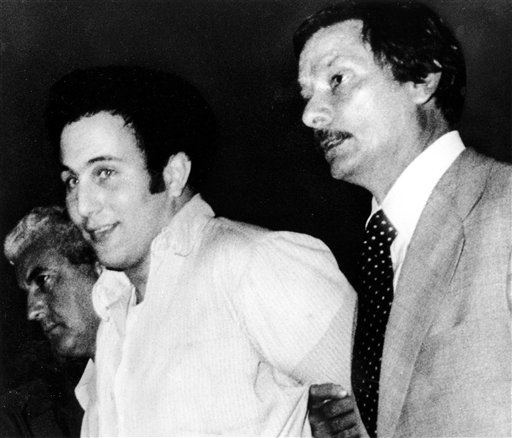Son of Sam laws prohibit criminals from profiting from writings or shows about their crimes. However, courts have frequently struck down these laws on First Amendment grounds.
New York law required criminal’s profits from any books, movies go to victims
New York Executive Law Section 632a, commonly known as the “Son of Sam” law, was hastily enacted in 1977 after serial killer David Berkowitz, also known as the “Son of Sam,” sold his exclusive story rights.
The purpose of the law was to “prevent those accused or convicted of a crime from profiting from the commercial exploitation of their crimes by contracting for the production of books, movies, magazine articles, television shows and the like in which their crime is reenacted” or in which the “person’s thoughts, feelings, opinions or emotions” about the crime are expressed.
The law required that any profits obtained from works describing a crime be withheld and made available to the victims. All monies received would be paid to the New York Crime Victims Board and held in escrow for five years. To claim the funds, the victim would have to obtain a civil money judgment against the criminal within this period.
Publisher challenged Son of Sam law on First Amendment grounds

The criminal activities of former Mafia member-turned-informant Henry Hill was the basis for the book “Wiseguy” by Nicholas Pileggi. Simon and Schuster successfully challenged a New York law that required profits from a criminal’s story to be available to victims. In this February 2005 photo, Hill sits in a restaurant in North Platte, Nebraska. (AP Photo/Nati Harnik, used with permission from the Associated Press)
On October 26, 1989, the publisher Simon and Schuster filed suit against the New York State Crime Victims Board in the U.S. District Court of New York.
At issue was the publisher’s contract with former Mafia member Henry Hill, whose past criminal activities were the basis of Nicholas Pileggi’s best-selling book Wiseguy and later the hit movie Goodfellas. The federal district court and later a federal appeals court upheld the New York Son of Sam law.
Supreme Court ruled Son of Sam law unconstitutional
However, in 1991 in Simon and Schuster v. Members of the New York State Crime Victims Board the Supreme Court declared that the statute was an unconstitutional content-based restriction of speech for two reasons.
First, the statute was overinclusive because it applied to any work that expressed the author’s thoughts or recollections of the crime, whether or not the author had been accused or convicted. Because crime-related expression itself is not criminal, writing about a crime should be protected under the First Amendment.
Second, the statute was underinclusive because it imposed a financial burden on individuals related to the content of their speech — that is, it would redirect income from an expressive activity, whereas other income would not be included.
Several lower courts also have invalidated state Son of Sam laws. For example, the Nevada Supreme Court invalidated its state law in Seres v. Lerner (Nev. 2004).
This article was originally published in 2009. Sandra Thomas is the Director of the library at Southeastern Oklahoma State University.

